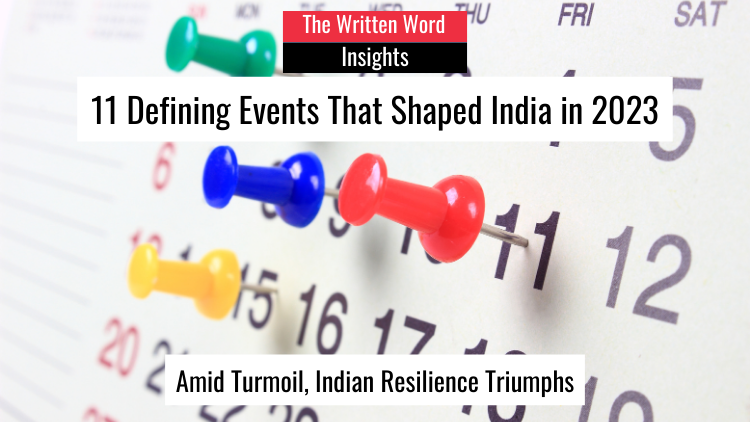
11 Defining Events That Shaped India in 2023
As 2023 draws to a close, a reflection on the year’s significant events reveals a notable contrast: the resilience of ordinary citizens and a few national triumphs serve as a counterbalance to the tragedies and erosion of civil and political rights that have marked these months.

Broadcast Bill Raises Alarms Over Press Independence and Free Speech
The scope and certain provisions in the Broadcasting Services (Regulation) Bill, 2023, raise critical concerns about the future of media freedom and the independence of digital journalism in India, according to analyses by independent media outlets.

Rampant Use of Spyware Against Indian Journalists, Report Says
There is new evidence of the ongoing use of Pegasus spyware against Indian journalists, says a report released on Dec. 28 by Amnesty International and The Washington Post. This comes about two months after Apple alerted iPhone users globally, including over 20 journalists and opposition politicians in India, about potential targeting by state-sponsored attackers.

India’s Fiscal Deficit Looks Set to Surpass Target
India’s fiscal deficit is likely to exceed the 5.9% of gross domestic product (GDP) target, according to India Ratings and Research. Though by a small margin, the increase could have several implications for the Indian economy and its citizens.

The Culture of Lying on Oath in Indian Courts
The pervasive culture of perjury in Indian courts – termed by the Supreme Court as a “way of life” – has led to a significant erosion of truth, resulting in miscarriages of justice that devastate lives and diminish public trust in the legal system, according to a media report.

Criminal Code Amendment Bills Become Law
The President of India on Dec. 25 gave assent to three controversial criminal law bills, marking a pivotal moment in the nation’s legal history. Citizens can expect a significant shift in the balance between state power and individual rights in the country.

Indian Army Accused of Killing Civilians in Kashmir
The recent civilian deaths in Kashmir, allegedly at the hands of the Indian Army following a rebel attack, require a critical evaluation against the backdrop of the “human security” approach. This framework, adopted to varying extents by many countries, can serve as a crucial reference point to gain a deeper understanding of the core issues behind the tension between national security and human rights.

Can Robotic Cleaning Replace Manual Scavenging?
Rajasthan has introduced robotic cleaners, a significant technological advancement aimed at replacing manual scavenging. While this represents a notable step forward, it may not scratch the surface of a deeper, more profound issue: the persistent lack of dignity imposed on Dalits, the community most affected by manual scavenging. After all, the problem of manual scavenging is not merely technical but deeply human.
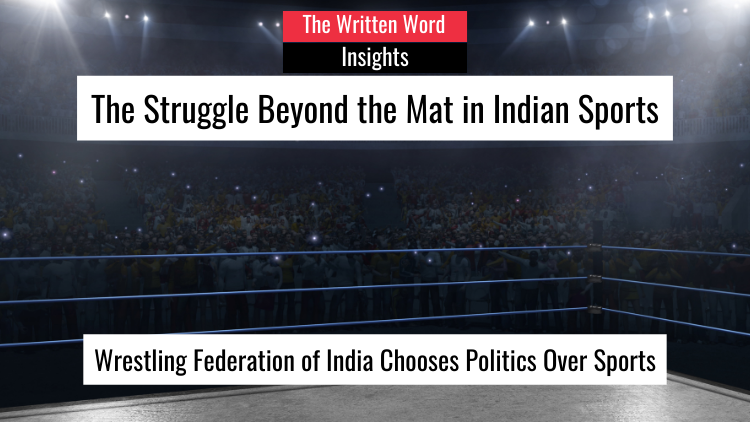
The Struggle Beyond the Mat in Indian Sports
The ousting of the Wrestling Federation of India chief Brij Bhushan Sharan Singh over sexual harassment allegations, followed by the election of his close aide as the new president, is a narrative deeply intertwined with the challenges faced by athletes in a system where political power often overshadows gender justice and sporting merit.

Is Parliamentary Democracy Collapsing in India?
The recent suspension of over 140 Members of Parliament in India marks a pivotal moment in the country’s political journey. This action, as noted by Pratap Bhanu Mehta, Contributing Editor at The Indian Express, signals a potential shift away from the established norms of parliamentary democracy. It’s a symptom of a broader transformation in India’s political landscape, raising significant concerns about the future of democracy and its institutions.
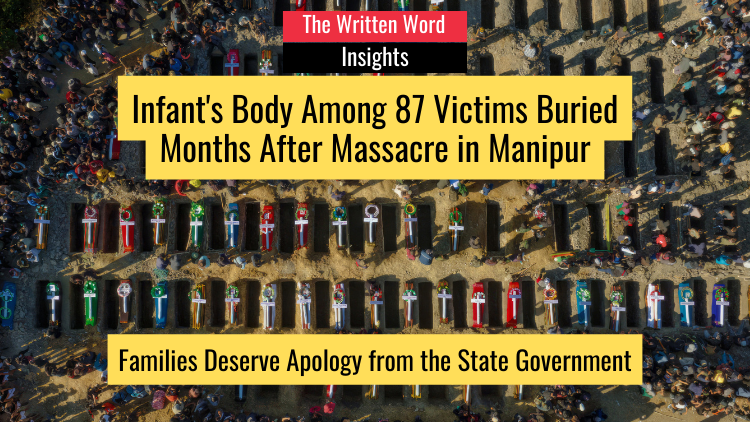
Infant Among 87 Victims Buried Months After Manipur Violence
Eighty-seven Kuki-Zo victims of the ongoing ethnic violence were finally buried on Dec. 20 in Manipur’s Churachandpur district. This solemn ceremony, attended by thousands, included the burial of a one-month-old infant, marking over seven months since the conflict began on May 3.

Thousands of Gujarat’s Migrant Children are Missing Out on Education
In Gujarat, a significant number of children from migrant worker families, particularly those involved in sharecropping, are not attending school, according to a report by IndiaSpend, which says this trend is prevalent among over 65,000 sharecropping families in the state, with an estimated 50,000 children migrating annually with their parents and remaining out of school for extended periods.

Over 150 Daily Suicides Among Farmers and Daily-Wage Workers in 2022
Of the 170,924 deaths by suicide reported in India in 2022, more than 56,280 occurred among daily-wage workers and those in the farming sector, according to the latest report released by the National Crime Records Bureau.

How University Clampdowns Affect Us All
A quiet transformation appears to be happening within the walls of India’s universities. The gradual restriction of academic freedom in these institutions isn’t just an issue for those within academia; its effects extend far beyond, touching the lives of citizens in profound ways.

Ex-Supreme Court Judge’s 4 Concerns About Apex Court and Government
In a recent address, Justice Rohinton F. Nariman, a former judge of the Supreme Court, shared four significant concerns regarding the current state of affairs in India, particularly in relation to the Supreme Court and the government.

Storming of Parliament and ‘Expression Claustrophobia’
The recent storming of the Lok Sabha by a group of young individuals is a breach of security but also a glaring indicator of a growing sense of suffocation felt by the youth in India, who are finding their voices muffled and their concerns ignored, leading to extreme measures for attention and action.

Madhya Pradesh’s New Meat Ban: A Step Back in Fighting Malnutrition
Madhya Pradesh’s new Chief Minister, Mohan Yadav, has declared a ban on the open sale of meat and eggs, stirring up serious concerns about its effects on public health, especially in a state already battling high malnutrition levels.
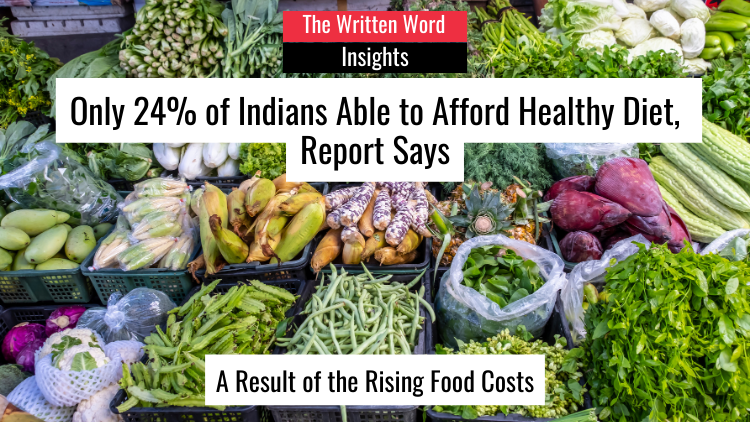
Only 24% of Indians Able to Afford Healthy Diet, Report Says
In India, as public discourse predominantly revolves around identity and ideology, crucial issues of significant importance often remain quietly simmering, receiving scant visibility. For instance, a recent UN report reveals that only one quarter of the country’s population can afford a healthy diet, and over 50% of women suffer from anaemia.

On the Supreme Court’s Kashmir Judgment
The Supreme Court of India on Dec. 11 upheld the 2019 abrogation of the autonomy of Jammu and Kashmir (J&K) under Article 370 of the Indian Constitution. What are the implications of the verdict on federalism and democracy? Here are some responses from independent media.
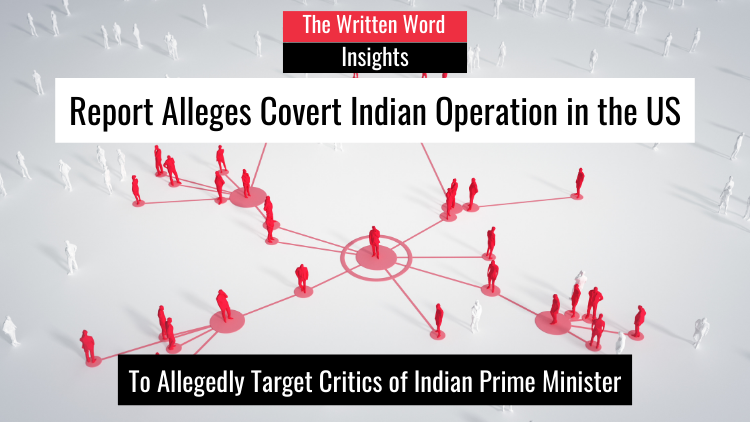
Report Alleges Covert Indian Operation in the US
The Washington Post has reported that a “covert Indian operation,” established in the United States to combat misinformation against India, has been using social media to sway public opinion and target critics of the Indian prime minister.
